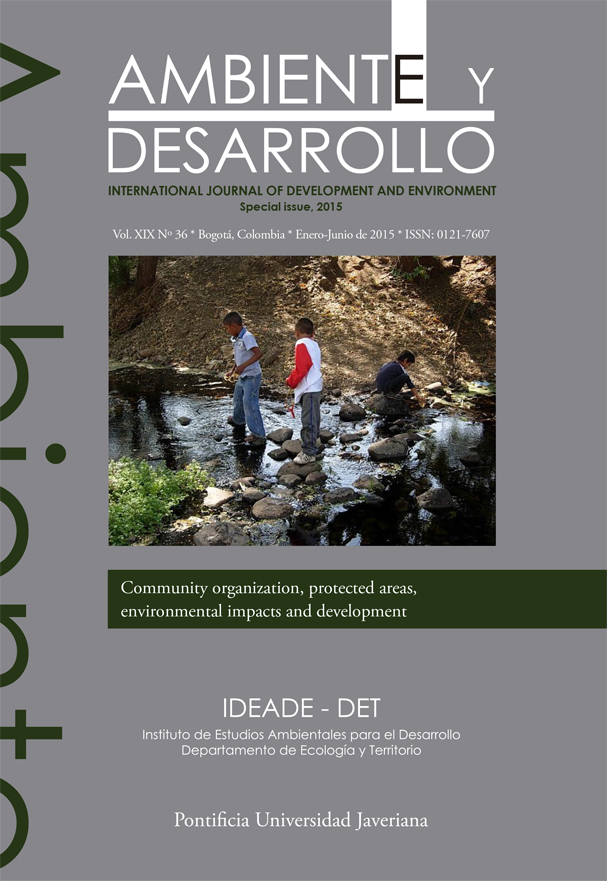Resumen
El turismo rural impacta no solamente la dimensión socioeconómica y política de las regiones. Como nueva función de la región, introducida en el territorio de la provincia de Guanentá, Colombia, el turismo rural puede entenderse como el resultado de la gestión llevada a cabo por el sistema de gobernanza y acogida por la cultura regional, en un proceso acumulativo y de largo plazo. Esta dinámica desencadena una serie de transformaciones para su implementación y consolidación, generando así un proceso de cambio y reordenamiento de la estructura espacial regional. Este proceso coadyuva a la explicación de la dinámica de construcción de esta región durante la última década.
Ambiente y Desarrollo se encuentra registrada bajo la licencia Creative Commons Reconocimiento 4.0 Internacional. Por lo tanto, esta obra se puede reproducir, distribuir y comunicar públicamente en formato digital, siempre que se reconozca el nombre de los autores y a la Pontificia Universidad Javeriana. Se permite citar, adaptar, transformar, autoarchivar, republicar y crear a partir del material, para cualquier finalidad (incluso comercial), siempre que se reconozca adecuadamente la autoría, se proporcione un enlace a la obra original y se indique si se han realizado cambios. La Pontificia Universidad Javeriana no retiene los derechos sobre las obras publicadas y los contenidos son responsabilidad exclusiva de los autores, quienes conservan sus derechos morales, intelectuales, de privacidad y publicidad.
El aval sobre la intervención de la obra (revisión, corrección de estilo, traducción, diagramación) y su posterior divulgación se otorga mediante una licencia de uso y no a través de una cesión de derechos, lo que representa que la revista y la Pontificia Universidad Javeriana se eximen de cualquier responsabilidad que se pueda derivar de una mala práctica ética por parte de los autores. En consecuencia de la protección brindada por la licencia de uso, la revista no se encuentra en la obligación de publicar retractaciones o modificar la información ya publicada, a no ser que la errata surja del proceso de gestión editorial. La publicación de contenidos en esta revista no representa regalías para los contribuyentes.


